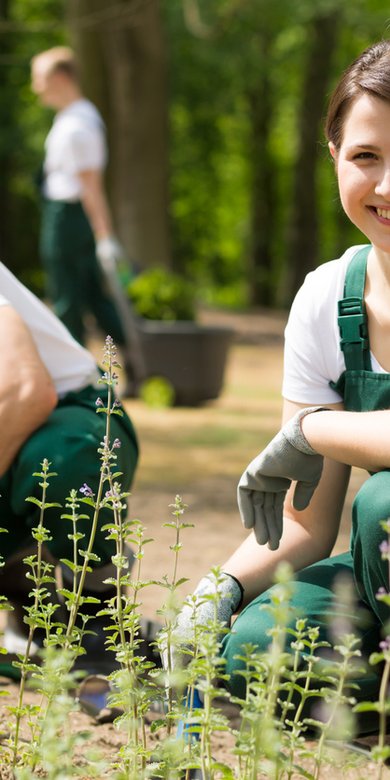
How we help
Whether you work with plants, trees, flowers or grass, if you work in horticulture or even if you’ve retired, we’re always here to build better futures for you and your family.

Perennial's gardens
Our award winning gardens offer a kaleidoscope of textures, shapes, and colours and are waiting for you to visit and explore.
Perennial is the UK’s only charity dedicated to helping people in horticulture.

Ways we help
Advice, information and support
We’re here for confidential support and advice anytime you need it. We understand everyone can face challenges in life – from money worries, ill health, homelessness, redundancy, bereavement or relationship breakdown.
Learn more
Gardens
Visit our gardens
From hidden places to escape the world, to blankets of winter snowdrops, to somewhere just to enjoy tea and (rather good) cake, our gardens are waiting for you to explore them.
Visit today
Support us
We need you now more than ever
With people facing the toughest financial times in a generation, they need all the help you can give. Here’s how to donate, raise money or even leave a legacy to Perennial so we can be there when they need us.
Support PerennialLatest news

Let's Dig Deep and fundraise for Perennial
5 Apr 2024|1 min read
Get ready to embark on an exciting journey with us as we dive into the heart of Perennial’s mission through our year-long fundrai…

Perennial's gardens are now open
5 Apr 2024|1 min read
We are thrilled to announce that our gardens are now open for the new season.

Be career smart with Perennial
5 Apr 2024|1 min read
Our Career Hub, SnapDragon is packed full of interactive resources designed to help you to make the right decisions, accelerate y…

Events
Garden tours and events
Experience the magic of our events and exclusive garden tours – book your spot today!
Book todayPeople stories

Employment support creates better future for Chris
Redundancy came as a massive shock for Devon-based gardener Chris. In the space of a few short days his whole life was turned upside down, and to make ma…

Supporting Stephen through his battle with cancer
For over 30 years, Yorkshireman Stephen dedicated his working life to gardening until he was diagnosed with cancer in his sixties. Undergoing invasive tre…

Helping Andy and his family find a way forward
Landscape gardener Andy Perry lost his leg after being bitten by a spider and developing sepsis. When he was at his lowest, suffering both financially and…

Our shop
Gifts for gardeners - chosen by gardeners. And when you buy from our shop, you’re helping our work too.
Shop today

